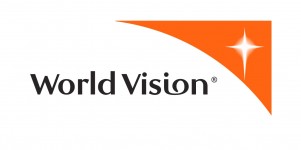“CHW Principles of Practice”: A New Framework to Guide CHW Programming

Community Health Worker (CHW) programs have been met with alternating enthusiasm and skepticism by the global health community. Following the Alma Ata declaration, considerable investments were put into training CHWs during the 1970’s and 1980’s, and CHWs were considered central to the “Health for All” agenda. But as time passed, questions arose about the effectiveness, quality, and sustainability of such programs. Retention, remuneration, and adequate supervision of CHWs emerged as serious challenges. Donor funding grew inconsistent, governments struggled to support national cadres of CHWs, and many in the global health community grew doubtful of CHWs as a strategy.
In recent years, however, evidence increasingly shows that CHWs are in fact effective, especially in the areas of child survival, nutrition, and HIV/AIDS care. Additionally, evidence reviews and country experiences of CHW scale-up programs have resulted in a greater understanding of how to ensure that CHW programs are sustainable and successful. In light of this new evidence and of the recognition of the role that CHWs will play in strengthening health systems, NGOs are once again investing considerable resources into CHW programming.
Various actors engaged in CHW programming have come to recognize the need to establish normative tenets to guide their efforts by drawing from the collective wisdom of the CORE group and from the experiences of World Vision International. The “CHW Principles of Practice” are a framework for advocacy, programming, and partnership between implementing NGOs, governments, and donor agencies working with CHW cadres in countries where rapid and urgent scale-up of CHW programs is a priority. They aim to guide NGOs to work with existing health structures through strong, long-term partnerships. They address CHW program issues such as competitive and duplicative working strategies, diverse incentives, parallel services, and diversity in supervision and reporting, among others.
The seven Principles of Practice are:
- Advocate for the legitimization and recognition of appropriate CHW cadres within the formal health system through country policies and initiatives that support registration, accreditation and minimum standards for the role and performance of different cadres.
- Enable and support country leadership including national or regional coordination bodies empowered to provide oversight in CHW program implementation across partner organizations and health authorities.
- Work with and through existing local health services and mechanisms where possible to strengthen them, avoiding the creation of parallel services, methods and supply chains or competitive working practices.
- Establish standards and methods for the motivation and support of CHWs which are ethical, non-competitive sustainable and locally relevant under a unified country policy.
- Develop minimum standards for training of specific cadres of CHWs under an agreed unified system linked to accreditation.
- Establish unified mechanisms for reporting and management of community health worker data that promote consistent quality monitoring and accountability to existing health structures and communities.
- Maximize the NGO’s role in supporting CHW research, and for the development of appropriate low-tech innovations, judiciously taking to scale evidence-based, cost-effective solutions made available in the public domain, through partnership approaches.
The full Principles of Practice document is available here. All NGOs engaged in CHW programming are encouraged to review and endorse this statement of Principles. The Principles are not a quick-fix solution, but rather serve as a guide to coordinate governmental and non-governmental organizations within a more effective national framework. In this way, national governments will be able to more effectively utilize their country’s resources through an organized network of NGO participation and CHW projects.
Feedback can be sent either through the comments below or by emailing Polly Walker, CHW Programming Advisor for World Vision at Polly.Walker@worldvision.org.uk.
A Guest Post from World Vision International

Comments are closed